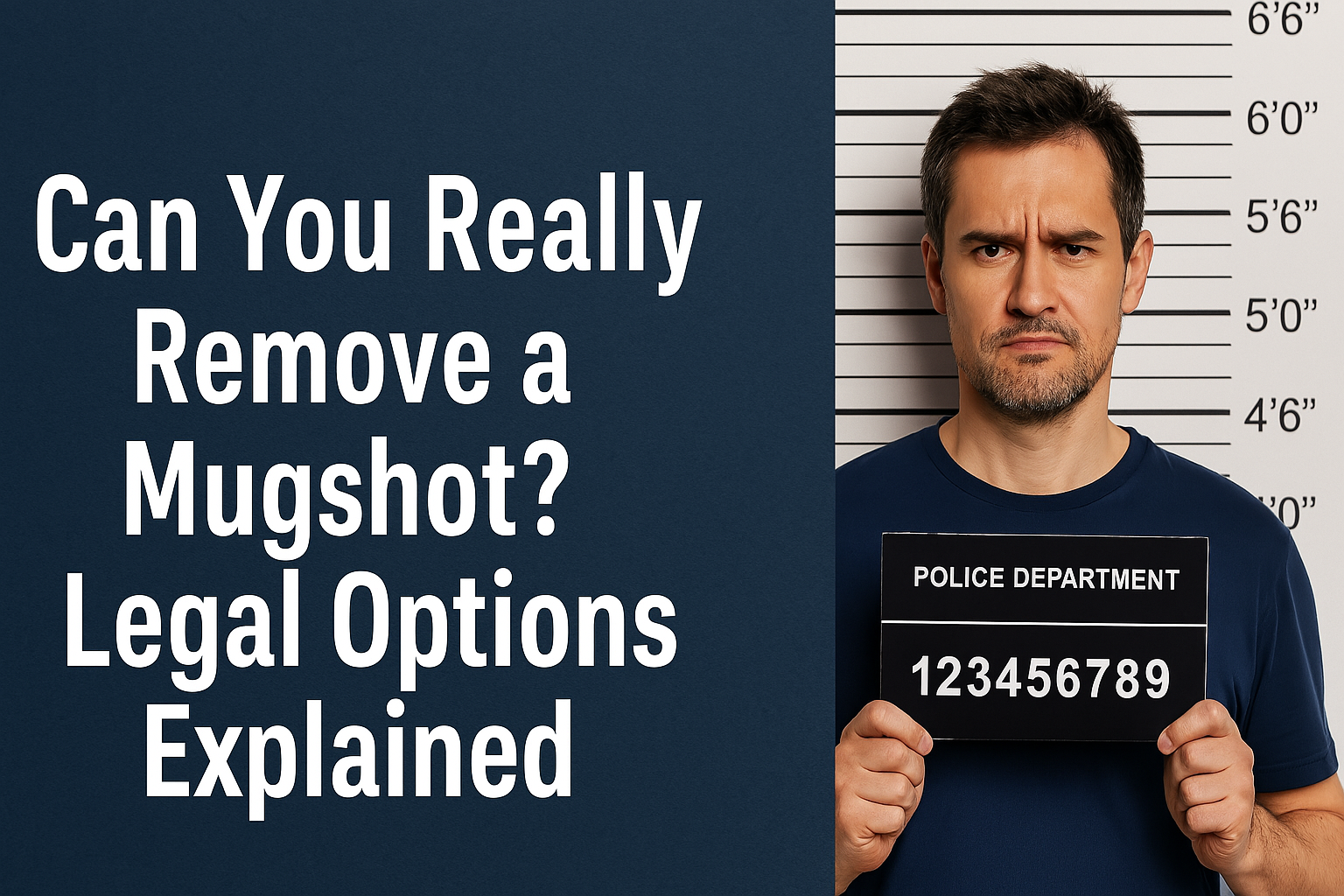Estimated reading time: 4 minutes
Table Of Content
The Problem with Online Mugshots
A mugshot published on the internet is more than just a photo. It’s a powerful symbol of accusation that can:
- Sabotage job searches
- Harm professional credibility
- Destroy personal relationships
- Invite online harassment
Even if charges were dropped or expunged, your mugshot can remain searchable for years—unless you act.
Why Mugshots Are Online in the First Place
Law enforcement agencies in some states upload mugshots as part of arrest records. Once public, these images are scraped by third-party websites, some of which charge fees for removal.
Common Mugshot Sites:
- Mugshots.com
- BustedNewspaper
- Arrests.org
These platforms often operate under legal grey areas, exploiting public records laws and search engine indexing.
Can You Remove a Mugshot?
Yes—but the approach depends on jurisdiction, arrest outcome, and the site’s policies.
Legal Grounds for Mugshot Removal:
- Expunged or Sealed Records: If your case was sealed, the mugshot may be required by law to be taken down.
- Inaccurate or False Arrest: False data can be grounds for removal via court orders or platform complaints.
- Right to Be Forgotten: In certain states or countries, individuals have a legal right to request content removal.
- State-Specific Legislation: Some states have passed laws banning the pay-to-remove mugshot model.
How to Remove a Mugshot: Step-by-Step
1. Search for All Listings
Use your full name in quotes, e.g., “John Smith arrest” on Google, Bing, and image searches.
2. Confirm Arrest Record Status
Was the case dismissed? Expunged? Sealed? You’ll need this documentation to proceed.
3. Contact Website Administrators
If the site offers a removal request form, start there. Always document your attempts.
4. Submit Legal Requests
Use legal grounds to request removal from:
- Google: Request content removal
- Website hosts: Use WHOIS to find hosting providers and report violations
5. Send a Cease and Desist Letter
With the help of an attorney, issue a formal legal demand for removal under threat of action.
When Mugshot Removal Is Legally Enforceable
In some cases, removal isn’t just possible—it’s enforceable by law.
States with Mugshot Removal Laws:
- California: Penal Code §23.1 forbids charging for mugshot removal
- Texas: Requires removal upon request if charges were dropped
- Georgia: Sites must remove within 30 days after a request with documentation
International Protections:
- EU’s GDPR provides a “Right to Be Forgotten“
- Canada: Privacy laws may favor removal of non-conviction mugshots
What If They Refuse to Remove It?
If your polite and legal requests fail:
- Take legal action: File a civil suit for invasion of privacy or defamation
- Work with a mugshot removal service: Professionals can expedite takedowns
- Suppress with SEO: Push down negative results with positive content
The Role of SEO in Reputation Recovery
Search engine results are often the first impression you make. If you can’t remove the image, you can bury it.
How to Suppress a Mugshot with SEO:
- Create a personal website using your full name
- Post blog content or press features
- Optimize all your social profiles (LinkedIn, Twitter, etc.)
- Publish guest posts or interviews that rank high
Example SEO Strategy:
- Domain: www.janesmithportfolio.com
- Page Title: Jane Smith | Tech Leader & Consultant
- Meta Description: Explore Jane Smith’s work in AI, innovation, and leadership.How Defamation Defenders Can Help
We offer comprehensive mugshot removal legal solutions, including:
- Direct negotiations with mugshot sites
- Filing of legal documentation for expunged cases
- SEO strategies to push negative content off page one
- Monitoring tools to track new appearances
📞 Request a free evaluation today to protect your future.
FAQ: Mugshot Removal
Yes, in many states—but that doesn’t mean they must remain online forever.
Yes, particularly if they charge for removal or post inaccurate information.
Anywhere from a few days to several months depending on the case and jurisdiction.
Only if it violates laws or Google’s policies, such as outdated or sensitive personal information.
Be cautious. Many pay-for-removal sites are scams or re-upload images elsewhere.
Related Content:



